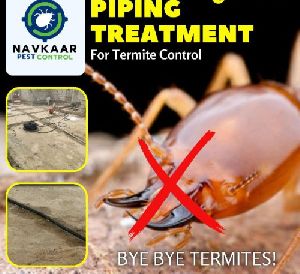
Insecticide

termite control service
Termites are social insects that live in colonies and feed on wood, plants, and other cellulose materials. They are often referred to as the “silent destroyers” because they can cause extensive damage to wooden structures without being detected. There are over 2,700 known species of termites, with varying levels of damage potential. Termites have a caste system that includes workers, soldiers, and reproductive termites. The queen termite can lay up to 30,000 eggs per day. Termites have the ability to chew through plastic, plaster, and metal in search of food and nesting sites. Subterranean termites, which live in the soil, are the most destructive species and can cause significant structural damage to homes and buildings. Termites are found in every U.S. state except Alaska and are prevalent in warm and humid climates. Termite infestations are often not covered by homeowners insurance, making prevention and early detection crucial. Annual termite inspections by a pest control professional can help identify and prevent termite infestations. Termites are a serious threat to the structural integrity of homes and buildings. Knowing the key facts about termites can help homeowners and property managers take preventative measures to protect their property from these destructive pests.
...more
cleaning chemicals services

Honey Bee Removal Service
Honey bees are social insects that live in colonies with one queen bee, thousands of female worker bees, and a few male drone bees. Honey bees play a vital role in pollinating many crops and wildflowers, helping to ensure food production and biodiversity. Honey bees have a complex communication system that involves dancing to communicate the location of nectar sources to other bees in the colony. Honey bees make honey by collecting nectar from flowers and processing it with enzymes and evaporation. Honey bees use propolis, a sticky resin from trees, to seal gaps in their hive and protect against intruders and disease. Honey bees have barbed stingers that are designed to stick in the skin of predators, causing the bee to die after stinging. Honey bees are threatened by habitat loss, pesticide use, and diseases such as Colony Collapse Disorder. Honey bees are not aggressive and will generally only sting if they feel threatened or their hive is disturbed. Africanized honey bees, also known as “killer bees,” are a more aggressive hybrid of honey bee that can be dangerous to humans and animals. Honey bees can swarm, where a group of bees leave the colony with the old queen to form a new hive, which can be a nuisance if it happens near homes or other structures. Honey bees are important pollinators and play a vital role in the ecosystem, but they can sometimes become a nuisance if they establish a hive in an unwanted location. It’s important to be cautious around honey bees to avoid getting stung, but also to take steps to protect them and their colonies.
...moreBe first to Rate
Rate ThisOpening Hours